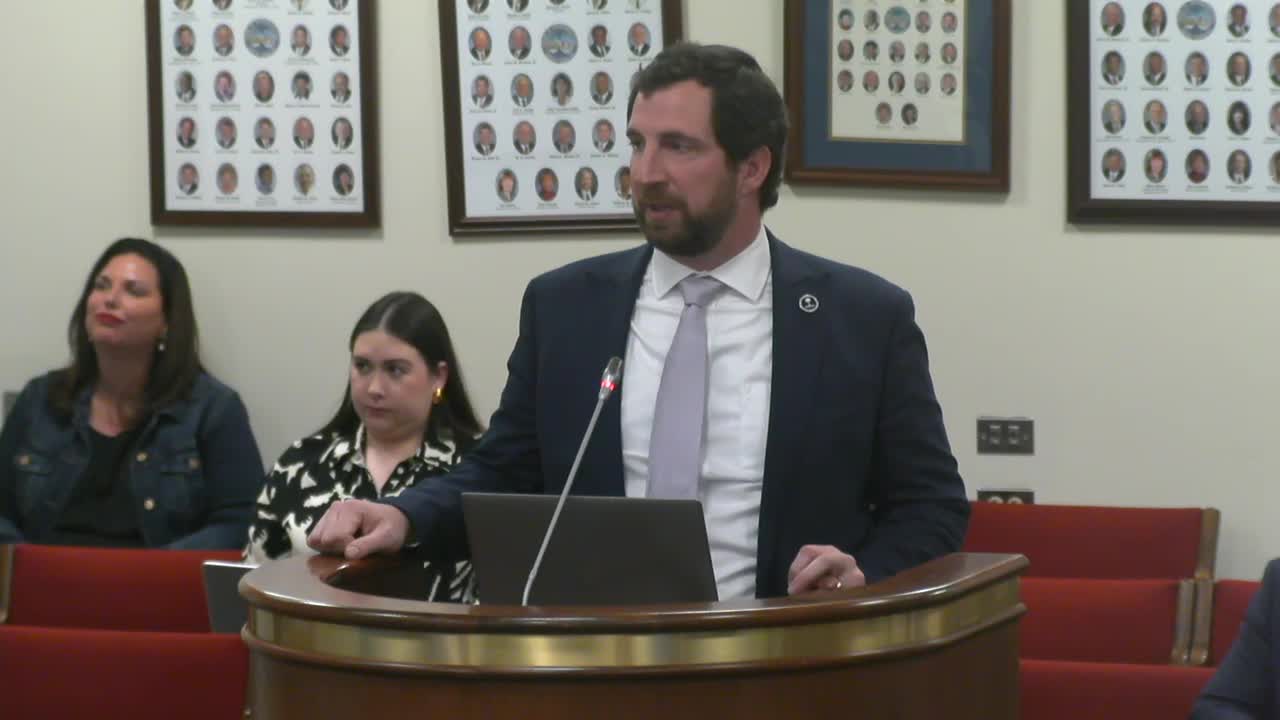State Department of Education outlines science‑of‑reading, Palmetto Math and "Free to Focus" cell‑phone policy; seeks $200M to raise starting teacher pay
Get AI-powered insights, summaries, and transcripts
Subscribe
Summary
At a House Education and Public Works Committee hearing, Philip Cease, director of governmental affairs for the State Department of Education, outlined the agency’s strategic plan and budget priorities, including large investments in LETRS literacy training, a statewide Palmetto Math expansion and a cell‑phone “Free to Focus” model policy for local districts.
At a House Education and Public Works Committee hearing, Philip Cease, director of governmental affairs for the State Department of Education, outlined the agency’s strategic plan, ongoing literacy and math initiatives and a multi‑part budget request that would expand instructional materials, teacher supports and school safety investments.
Cease said the department’s mission work includes a “moonshot” student achievement goal and a four‑part strategy that foregrounds evidence‑based instruction for foundational skills, workforce and career pathway alignment, supports for school culture and behavioral and mental health needs, and a statewide community engagement program that sends state employees into local schools as volunteers.
On early literacy, Cease highlighted the statewide rollout of LETRS (structured literacy professional learning): the legislature funded nearly $40,000,000 for LETRS training two years ago to provide high‑quality professional learning for K–3 teachers, Cease said, and thousands of teachers are in the pipeline or have completed the training. The department also seeks to expand the Palmetto Math Project — a targeted effort modeled on its literacy work — using funds from a pending budget request for high‑quality instructional materials.
Cease described the “Free to Focus” cell‑phone proviso adopted in the recent appropriations bill. The proviso required the State Board of Education to adopt a model policy that local school boards must adopt to keep classroom funding. The model defines “access” to electronic devices (viewing, holding, wearing or otherwise using) and specifies school‑day enforcement from tardy bell to dismissal bell; local districts determine specific consequences and may set exceptions (for IEP/504 medical devices, volunteer first responders or uses tied to academic outcomes). The department has posted implementation resources, including a handbook and FAQs, and officials said they are collecting early data on the policy’s effects.
Cease summarized the department’s 2025 budget request as three overarching categories — student success, teacher supports and safe schools — and provided line items: an additional $200,000,000 to increase starting teacher pay to $50,000 (including a $2,000,000 request to ensure the increase also covers special schools), $20,000,000 recurring and $95,000,000 nonrecurring for high‑quality instructional materials (math and ELA), $13,000,000 for a CTE Rural Renaissance program and funding for summer reading camps to support third graders at risk of retention under Read to Succeed. On safety, Cease described a proposed $100,000,000 recurring rural infrastructure bank and $20,000,000 for school facility upgrades (door locks, window film, other hardening), and allowed use of state funds for cell‑phone storage solutions and bus lease purchases.
Committee members asked about AI in classrooms, resource officers, and parent and teacher reactions to the cell‑phone policy. Cease said at least one district has used AI tutoring tools with an innovation grant and agreed to help connect members with districts using such tools. He said the department had heard many questions from parents before implementation and some positive early anecdotal reports from teachers after implementation. No formal votes were taken during the briefing; the presentation was informational and committee members requested additional budget detail and implementation data.
Ending: Cease encouraged members to review the department’s online resources and offered follow‑up contact for grant, materials and policy questions.
